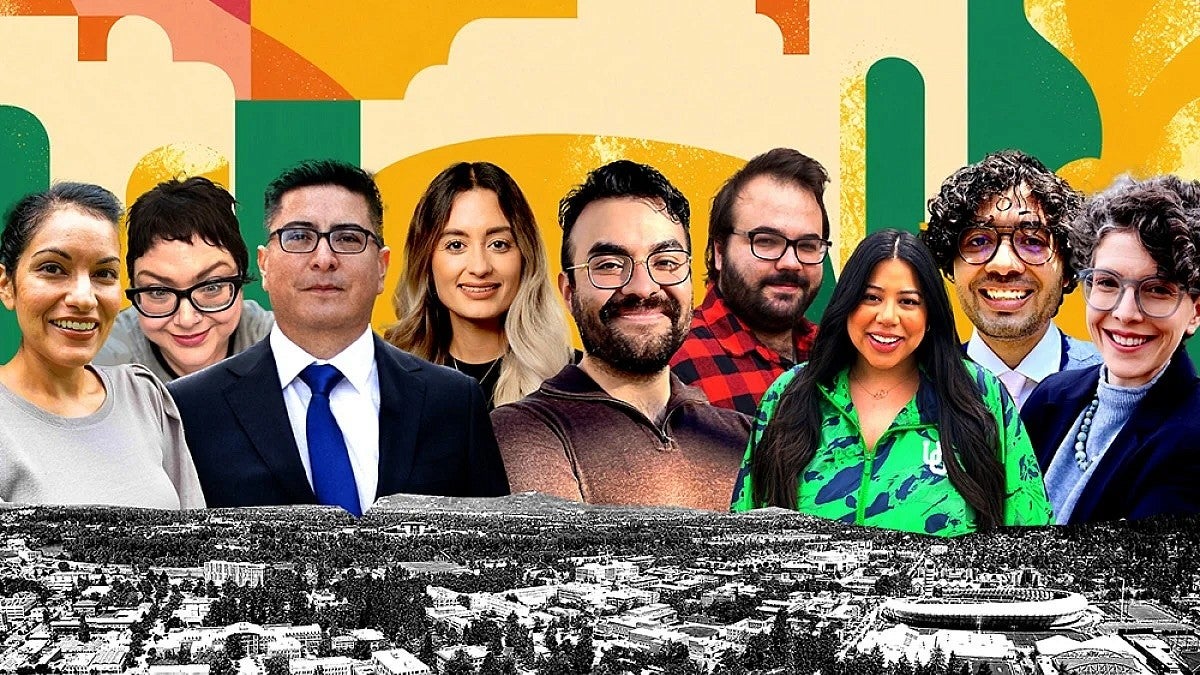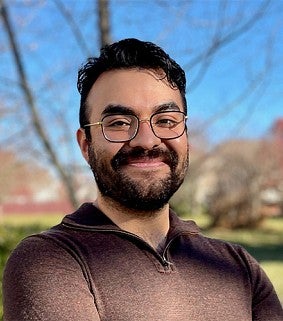
The College of Arts and Sciences is investing in its Latinx studies courses by hiring nine new tenure-track faculty members. The new hires will offer courses to meet the demands of a growing Latinx Studies Minor Program, mentor undergraduate and graduate students, provide fresh perspectives in their disciplines—and more.
Ramón Resendiz (Department of Anthropology) is one of the faculty members hired as part of this initiative. He joins CAS in fall 2025.
Coming from Indiana University, Bloomington, Resendiz’s research investigates the relationship between historical institutions, visual culture, and documentary media in the process of seeing and imaging the history and citizenship of Latinx and Indigenous Peoples in the US. He is currently working on his book Archival Resistance: A Xicanx Ethnography of Memory, Documentary Media and Refusals as a Postdoctoral Fellow at the Center for Research on Race & Ethnicity in Society and The IU Media School. He is also working on the pre-production for his next documentary film project currently titled: Mitotes y Resistencia.

What was your academic career like? Did you always know you wanted to be in academia? What inspired you to become a professor?
I always knew I wanted to be in academia because I was raised by my aunt, who is a criminal sociologist and Chicana feminist. She, along with my family, instilled a wholehearted belief in me of the radical power of education to make a better world.
As an undergraduate at the University of North Texas, I was intrigued by the idea of visual anthropology to educate people. I was fortunate enough to become a Ronald E. McNair Scholar, which allowed me to begin conducting interdisciplinary research in the areas of Latinx and Indigenous visual culture, ethnographic film, and environmental justice. This fellowship set me on a path to become a decolonial feminist media producer and scholar in the Native Voices graduate documentary film program at the University of Washington and to pursue a PhD in Media, Culture and Communication at New York University to help rectify the historic erasures of my and other marginalized communities in teaching, academia, and other sites of knowledge production.
As a result, teaching and mentoring remain among my key priorities, and as a faculty member, I will actively continue to mentor students pursuing research to further the just representations of them and their communities in higher education and society at large.
How do Latinx courses enrich a student’s education?
Latinx studies courses enrich everyone’s education by foregrounding the lived experiences, contributions, and citizenship of Latinx peoples both within and beyond the borders of the US. I think that for Latinx students it’s especially important to note the importance of learning about their own social and historical contributions, and to see themselves as active social agents and producers of culture. I also think it’s equally important for non-Latinx people to learn about the mass diversity of Latinx cultures and to understand the critical role played by Latinx peoples in the political, cultural, and material composition of the US, as well as at the hemispheric level. Technically and historically, the colonial construction of what we now consider Latinx begins as early as the late 15th century with the arrival of European Spanish colonizers in North America.
For Latinx Indigenous peoples, their identities and presence on this hemisphere surpasses millennia and can’t be confined to Euro-American framings of provenance and history. Hence knowing the temporal depth of these histories is critical to understanding the present composition of the Americas. I do think Latinx studies courses ultimately contribute to the creation of a more equitable and just society.
And a couple fun ones: What’s your desert island book? What’s your favorite food?
My favorite food is any home-cooked meal—there is a specific form of care that goes into making food at home for someone you know, including oneself. I recall how my grandmothers would cook all the time, routinely for upwards of 10 people at times. That’s a lot of work!
As I’ve gotten older, I finally understand the amount of labor and time it takes to feed someone, so I’d say that’s my favorite type of food. With that said, I will always have a special place for street tacos, which are also extremely labor-intensive!
As far as my desert island book goes, I’d probably have to go with J.R.R. Tolkien’s Silmarillion (1977) because I’ve always wanted to read it but have yet to make the time!
